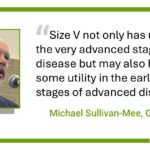
The regulatory authorities in the UK and US have agreed to work more closely together on the regulation of medical technologies and AI, with the aim of enhancing patient access to new innovations.
The MHRA in the UK and FDA in the US will work to foster greater regulatory alignment between the two agencies and develop initiatives to “accelerate innovation, strengthen patient safety, and reduce transatlantic barriers to market access.”
The plan, revealed by MHRA chief executive Lawrence Tallon this week at the AdvaMed conference in San Diego, includes the creation of a UK AI commission – including experts from both countries – which will have the objective of shaping “safe, transparent use of AI in healthcare.”
The National Commission on the Regulation of AI in Healthcare will shape recommendations on regulating AI-driven medical technologies, contributing to international alignment and accelerating safe access to AI in healthcare and across the UK’s NHS, said the MHRA.
Experts from the US will hail from big tech, including Google and Microsoft, as well as the Coalition for Health AI and Center for AI Innovation in Healthcare.
Reliance routes
At the heart of the partnership is the development of new regulatory ‘reliance routes’ that will allow medical devices, approved by trusted regulators like the FDA, to gain speedier access to the UK market.
“[We] are taking steps forward in the relationship between FDA and MHRA to strengthen regulatory alignment and reciprocity,” said Tallon. ”We share an ambition to accelerate joint initiatives, enhance policy development, and identify and work together on strategic opportunities more effectively.”
The initiative comes as the MHRA, along with NHS England and reimbursement authority NICE, is in the process of developing new rules and commissioning principles for medtech products designed to speed up the adoption of new technologies and achieve greater consistency and clarity on how to bring innovative products to market.
Part of that strategy involves extending the remit of NICE to include devices, diagnostics, and digital health products, and at AdvaMed, Tallon pointed to parallels in the reform with the FDA’s Total Product Life Cycle Advisory Programme (TAP) pilot, also set up to spur more rapid development and adoption of medtech.
The medtech reforms are due to come into effect next year, with the new reliance routes expected to arrive a year later.
“The US and UK share a common goal – ensuring patients benefit quickly and safely from the latest medical innovations,” said Tallon.
“With US-based thought leadership inputting to our new National AI Commission, and new reliance frameworks for FDA approvals, we are laying the foundations for a truly global, innovation-ready regulatory environment.”









